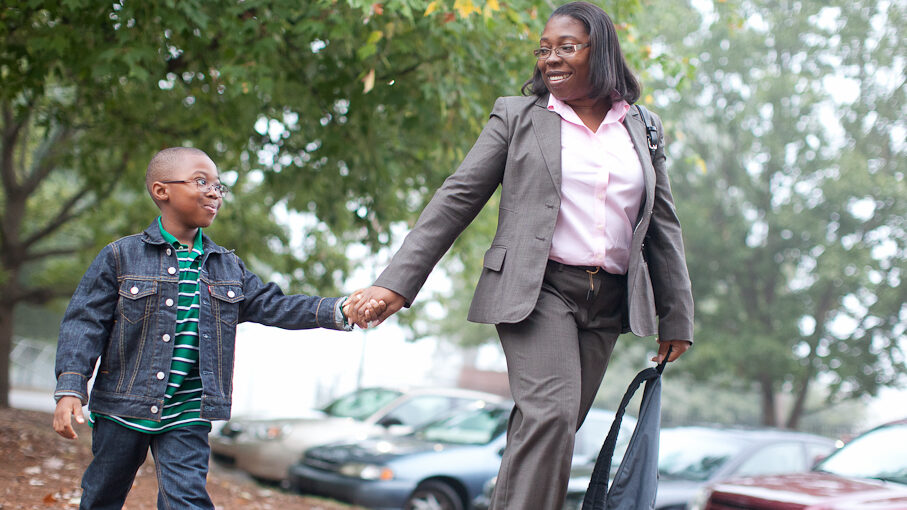
- This event has passed.
Uniting Schools & Families to Get Students Back Into the Attendance Habit

Co-Sponsored by Learning Heroes and Attendance Works
Moderated by John Gomperts of the Campaign for Grade-Level Reading, attendees heard from experts in the field who are actively working to align the priorities of strong attendance and family engagement.
Hedy Chang of Attendance Works opened the discussion by sharing critical insights about the current state of chronic absenteeism. She explained that rates doubled during the pandemic, peaking at 30% nationwide during the 2021–2022 school year, and while rates have improved slightly to just over 20%, they remain alarmingly high. Chang emphasized how chronic absenteeism disrupts entire classrooms, hindering consistent instruction and creating learning gaps. She also highlighted systemic barriers, such as unreliable transportation, housing instability and limited health care access, which were exacerbated by the pandemic. To address these challenges, Chang stressed the importance of building trust with families and fostering belonging in schools:
“This is a key partnership. We can help parents see that we care about them, that we want to be in partnership with them, that we’re willing to stop and listen to them, and that we can jointly and collectively solve the problem. That’s a proven recipe for success.”
Bibb Hubbard of Learning Heroes continued the conversation by discussing the presence of misconceptions among many families, with nearly 9 out of 10 parents believing that their child is performing at or above grade level in reading and math, despite data showing otherwise. The disconnect, Hubbard explained, stems largely from parents relying on report cards as the primary indicator of their child’s academic performance. When children appear to be doing well in school, she explained, parents may feel less urgency to prioritize attendance. Because of this disconnect, Hubbard emphasized the critical role of family engagement and strong parent-teacher relationships, with data showing that schools with strong family engagement reported lower rates of chronic absenteeism and higher academic achievement:
“There are so many strategies and tactics that can be implemented, but if you’re not doing it with a lens of collaboration and deep relationship building with families, you’re not going to see the same results.”
Shadae Harris, Ph.D., with Groundwork Consulting shared her insights on redefining attendance as a family engagement issue, drawing from her work in Richmond, Virginia and explaining how they shifted their language from “attendance officers” and “attendance plans” to “family liaisons” and “engagement plans” as a way to build trust leading to better attendance. She emphasized that addressing chronic absenteeism requires authentic engagement, where school leaders actively listen to and collaborate with families and are able to “share power” with one another. Harris highlighted the school district’s efforts to prioritize family needs by tackling root causes of absenteeism, such as housing insecurity. Through an innovation grant, she shared that over 130 families were able to secure stable housing, fostering trust and strengthening connections within the community:
“We’re talking about sharing power, and that’s what it looks like: sharing resources, building trust, helping one another….[From there] you’re able to start a trust cycle where word is going to spread that you’re consistent in what you’re doing for families.”
Lastly, attendees heard from Emily Bailard who discussed how EveryDay Labs partners with school districts, including Richmond Public Schools, to implement comprehensive improvement strategies. Bailard emphasized three pivotal components of the work:
- Providing valuable data intelligence and collaboration tools
- Offering professional learning for school staff
- Delivering evidence-based attendance communications, including chronic absence nudges, truancy notices and individualized family support campaigns
This approach ensures that staff can focus on meaningful family engagement, while parents receive the essential information and support they need to improve attendance:
“Ensuring that some of that basic communication is happening, so that parents receive the information they need, as well as using technology to coordinate high-touch work [such as home visits and family attendance conferences], is vital in building those relationships with families.”






